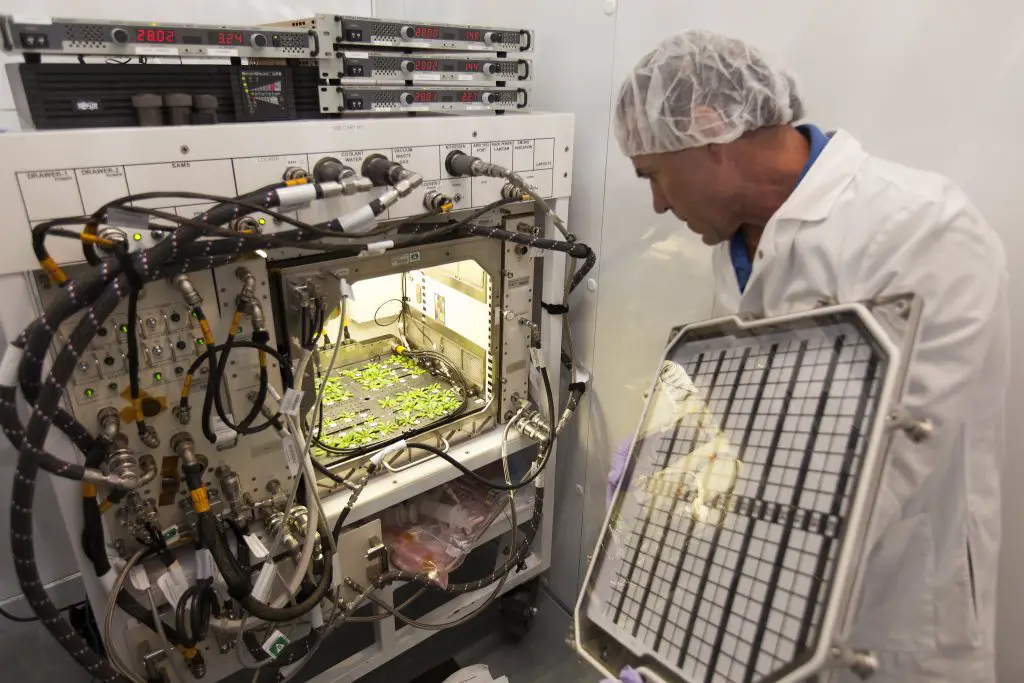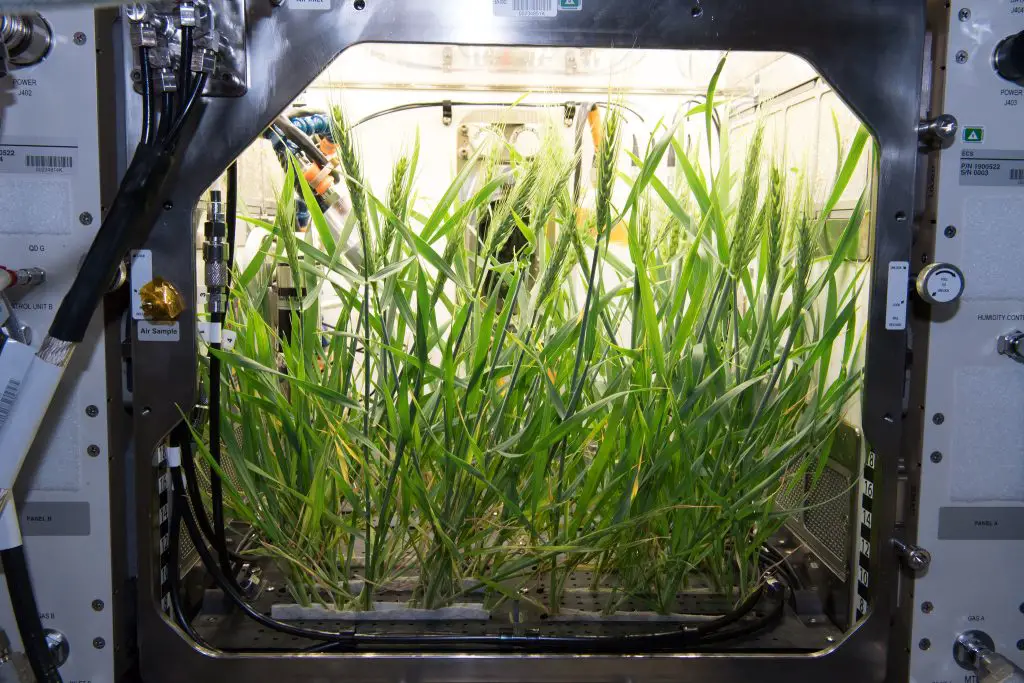Plants cannot grow in the human body due to the incompatible conditions and lack of necessary nutrients and sunlight. Plant growth in the human body is scientifically impossible due to the absence of essential factors like sufficient sunlight, appropriate soil, and the necessary nutrients required for plant growth.
Though plants are vital for human survival as a source of food and oxygen, they cannot thrive within our bodies. While it is fascinating to think about the potential symbiotic relationship between plants and humans, the reality is that our bodies are not suitable environments for plant growth.
In this article, we will explore the reasons why plants cannot grow within the human body and delve into the unique characteristics and requirements of plants that make them incompatible with our physiology.

Credit: blog.adafruit.com
How Does Plant Growing Occur In The Human Body?
Plant growing in the human body may sound like something out of a science fiction movie, but in reality, it is a fascinating phenomenon that occurs under certain circumstances. In this section, we will examine the scientific process behind plant growing in the human body, discuss the factors that contribute to this growth, and explore the role of genetics and genetic modification.
Examining The Scientific Process Behind The Phenomenon:
- When a human ingests seeds or plants, they can sometimes survive the journey through the digestive system.
- Once inside the body, these seeds or plants can find suitable conditions to germinate and grow.
- This process is similar to how plants grow in the soil, but with some adaptations to survive within the human body.
- The human body provides a warm and moist environment, which is conducive to the growth of plants.
Discussing The Factors That Contribute To Plant Growth In The Human Body:
- Adequate moisture is an essential factor for plant growth in the human body.
- The presence of nutrients from the food we consume can also contribute to the growth of plants.
- Certain medical conditions or medications may alter the ph levels or other conditions in the body, creating an environment favorable for plant growth.
- The immune system response, or lack thereof, can affect the growth and survival of plants in the human body.
Exploring The Role Of Genetics And Genetic Modification:
- Genetics plays a role in determining how plants adapt and grow within a human body.
- Some plants may have genetic traits that allow them to thrive in different environments, including within the human body.
- Genetic modification can potentially enhance the ability of plants to grow in the human body, but this field of study is still in its early stages.
- Understanding the genetic factors involved in plant growth within the human body can have implications for medical research and could lead to new therapeutic approaches.
The phenomenon of plant growing in the human body is a complex and intriguing topic. By examining the scientific process, discussing contributing factors, and exploring the role of genetics and genetic modification, we can gain a better understanding of this unique occurrence.
Further research in this area could unlock new insights and possibilities for both medical and scientific advancements.
Case Studies: Real-Life Instances Of Plant Growing In Human Bodies
Plant Growing In Human Body
Human bodies are marvelous machines, capable of performing incredible feats of biology. While we may associate plants with the natural world, it’s astonishing to learn that instances of plant growth within the human body have been documented. These rare occurrences present a unique set of challenges for medical professionals, who are tasked with understanding and addressing the symptoms, diagnosis, and treatment options associated with this peculiar phenomenon.
In this section, we will investigate some real-life cases of plant growth in human bodies, analyze the symptoms, diagnosis, and treatment approaches, and discuss the medical implications and challenges faced by experts.
Investigating Documented Cases Of Plant Growth In Humans
- Case 1: A 45-year-old female presented with chronic abdominal pain and swelling. Upon examination, doctors discovered a small plant sprouting from her abdomen. The patient recalled inadvertently ingesting a seed during a gardening mishap several months prior.
- Case 2: A 32-year-old male reported persistent nasal congestion and occasional bleeding. Further examination revealed a tiny plant growing in his nasal cavity. It was suspected that the patient had inhaled a seed while working in his garden.
- Case 3: A 60-year-old male complained of severe discomfort and an unusual sensation in his ear. An examination uncovered a small plant that had taken root within the ear canal. The patient admitted to accidentally placing a seed into his ear during an attempt to alleviate an itch.
Analyzing The Symptoms, Diagnosis, And Treatment Options
- Symptoms: Plant growth in the human body can manifest in various ways, depending on the affected area. Common symptoms include pain, swelling, unusual sensations, bleeding, and obstruction.
- Diagnosis: Doctors typically conduct a thorough medical history review, physical examination, and imaging tests such as x-rays or ct scans to identify the presence and location of the plant growth.
- Treatment options: Surgical intervention is often required to remove the plant and any associated debris from the body. In some cases, a combination of medication and surgical procedures may be necessary to address underlying infections or complications.
Highlighting The Medical Implications And Challenges Faced By Experts
- Medical implications: The phenomenon of plant growth in human bodies poses a multitude of medical implications, including infection risks, potential damage to surrounding tissues and organs, and the need for timely intervention to prevent further complications.
- Challenges faced by experts: Medical professionals face several challenges when treating cases of plant growth in humans. These include identifying the exact plant species for appropriate treatment, minimizing the risk of complications during removal procedures, and addressing any secondary infections or allergies that may arise.
Documenting and understanding instances of plant growth in human bodies is crucial for healthcare professionals. By analyzing the symptoms, diagnosing the condition accurately, and exploring treatment options, experts can effectively manage this rare occurrence. However, the medical implications and challenges associated with plant growth in human bodies highlight the need for ongoing research and comprehensive approaches to ensure optimal patient care.
Potential Reasons And Explanations For Plant Growth
Plant growing in human body: potential reasons and explanations for plant growth
Plants growing in the human body may sound like something out of a sci-fi movie, but there have been rare cases reported where plants have been found growing inside humans. While these occurrences are extremely rare, scientists and researchers have delved into the potential reasons and explanations for such peculiar phenomenon.
Let’s explore some of the theories and hypotheses surrounding plant growth in the human body.
Exploring Various Theories And Hypotheses
- Foreign body ingestion: One possible explanation for plant growth in the human body is the accidental ingestion of seeds or plant matter. When consumed, these seeds may find themselves in suitable conditions within the digestive system and begin to germinate and grow.
- Traumatic implantation: Another theory suggests that plant growth in the human body may occur as a result of traumatic implantation. In cases where a person sustains a deep wound or injury, plant matter may get embedded in the body and start to grow under certain conditions.
- Parasitic interaction: Some scientists propose that certain parasites, such as fungi or bacteria, could play a role in facilitating plant growth within the human body. These parasites may create a favorable environment for plants to take root and flourish.
Discussing The Role Of Environmental Factors
- Moisture and humidity: Plants require moisture to grow, and the presence of a suitable moist environment within the human body could potentially support plant growth. In regions with high humidity, the chances of plant growth may increase.
- Temperature conditions: Another environmental factor that might contribute to plant growth is the optimal temperature range. Certain plants thrive in specific temperature conditions, and if a human body provides an ideal temperature range, it could support plant growth.
- Dark and enclosed spaces: The absence of light is a crucial factor for plant growth. Inside the human body, certain cavities or injuries may provide a dark and enclosed space where plants can develop without direct exposure to light.
Considering The Impact Of Dietary Habits And Nutrition
- Seed consumption through food: Seeds present in fruits, vegetables, or other plant-based foods ingested by humans can survive the digestive process and potentially grow inside the body under suitable conditions.
- Nutritional requirements: Adequate nutrition is essential for plant growth. If a person’s diet lacks certain nutrients, it may impact the ability of any ingested seeds to germinate and grow within the body.
- Imbalanced gut microbiome: The composition of the gut microbiome can influence the environment within the digestive system. An imbalanced microbiome may create conditions that foster plant growth.
While the occurrence of plants growing within the human body remains incredibly rare, understanding the potential reasons and explanations behind this phenomenon can shed light on the unique adaptability and resilience of both plants and the human body. Further research is needed to delve deeper into these captivating occurrences and unravel more about the interactions between the human body and the plant world.
The Role Of Fungi And Bacteria In Plant Growth Within The Human Body
The role of fungi and bacteria in plant growth within the human body
Investigating The Symbiotic Relationship Between Plants, Fungi, And Bacteria:
- Plants, fungi, and bacteria exist in a mutually beneficial relationship within the human body.
- This symbiotic relationship is known as endophytic association, where plants host microorganisms and provide them with nutrients and a home.
- In return, fungi and bacteria assist in plant growth by aiding in nutrient absorption and enhancing the plant’s ability to combat stress and pathogens.
Analyzing How These Organisms Contribute To The Phenomenon:
- Fungi play a crucial role in plant growth within the human body by forming mycorrhizal associations with plant roots.
- Mycorrhizae provide plants with increased access to nutrients, particularly phosphorus, which can be limited in some environments.
- Bacteria, on the other hand, contribute by fixing atmospheric nitrogen and converting it into a form that plants can utilize.
- They enhance plant growth by promoting nutrient absorption and protecting plants from harmful pathogens.
Exploring The Potential Benefits And Risks Associated With This Relationship:
- The symbiotic relationship between plants, fungi, and bacteria offers various benefits to the human body, such as improved nutrient availability and enhanced immune system function.
- It can aid in the remediation of environmental pollutants and promote overall plant health and resilience.
- However, there are also potential risks associated with this relationship, especially when pathogenic microorganisms are involved.
- It is crucial to further research and understand the specific mechanisms and potential risks to harness the full potential of plant growth within the human body.
The intricate interplay between plants, fungi, and bacteria within the human body creates a fascinating symbiotic relationship. Understanding and harnessing this phenomenon can lead to numerous potential benefits, from improved health and nutrition to environmental remediation. Further research is necessary to grasp the complexities and potential risks of this relationship fully.
Ethical And Moral Implications Of Plant Growing In Humans
In recent years, a fascinating phenomenon has emerged in the field of medical research – the ability to grow plants inside the human body. This revolutionary breakthrough has sparked widespread discussion and debate on the ethical and moral implications it presents.
In this section, we will delve into the various considerations surrounding the growth of plants in humans, exploring its implications for medical research and treatment, as well as addressing societal concerns and public perception.
Discussing The Ethical Considerations Surrounding The Phenomenon:
- Bringing plants into the human body raises questions of consent and autonomy, as it involves altering the natural state of the human body without explicit permission.
- The potential long-term effects on overall human health and well-being need to be thoroughly investigated before widespread adoption of this technology.
- The concept also sparks debates on the sanctity of human life and the intrinsic value of living organisms.
- Ethical guidelines and frameworks should be established to ensure that the growth of plants in humans is conducted responsibly and with respect for individual rights and societal norms.
Examining The Implications For Medical Research And Treatment:
- Growing plants in the human body offers a novel approach to drug delivery, potentially revolutionizing the field of medicine.
- By harnessing the natural mechanisms of plants, targeted drug delivery can be achieved, minimizing side effects and increasing the efficacy of treatments.
- This technique could pave the way for advancements in areas such as chronic disease management, cancer treatment, and regenerative medicine.
- Further research is required to optimize the growth process, understand the interactions between plants and the human body, and explore the potential applications in different medical fields.
Addressing Societal Concerns And Public Perception:
- The introduction of plants into the human body may evoke mixed reactions from the public, ranging from curiosity to fear and suspicion.
- Concerns may arise regarding the safety, side effects, and potential risks associated with this innovative approach.
- Public education and open dialogue can play a crucial role in addressing these concerns and ensuring that accurate information is available to all.
- It is important to consider the social, cultural, and religious perspectives when introducing such a transformative concept to society.
By critically examining the ethical considerations, medical implications, and societal concerns associated with the growth of plants in the human body, we can pave the way for a balanced and informed discussion. While this technology holds immense potential, it is imperative to proceed with caution, safeguarding the well-being and autonomy of individuals, and ensuring that scientific advancements align with societal values.
Frequently Asked Questions For Plant Growing In Human Body
Can Plants Actually Grow Inside The Human Body?
Yes, it is not possible for plants to grow inside the human body. The human body does not provide the necessary conditions for plant growth, such as sunlight, soil, and nutrients. Any claim suggesting otherwise is a myth or a misunderstanding.
Is It Possible For Seeds To Sprout In The Human Body?
No, seeds cannot sprout or grow inside the human body. Seeds require specific conditions like soil, water, and temperature variations to germinate. The human body does not provide the suitable environment for seed germination, making it impossible for seeds to sprout and grow.
Are There Any Documented Cases Of Plants Growing In Humans?
There are no documented cases or scientific evidence of plants growing inside humans. While some parasites like worms or insects can infest the body, no plant species can survive and grow within the human body. Claims of such cases are often fictional or exaggerated.
Can Swallowing Seeds Lead To Plants Growing In The Stomach?
No, swallowing seeds will not lead to plants growing in the stomach. The stomach’s digestive acid and enzymes would not support seed germination or plant growth. Ingested seeds usually pass through the digestive system and are excreted without any growth occurring.
Are There Any Health Risks Associated With Plants Growing In The Human Body?
Since plants cannot grow inside the human body, there are no health risks associated with this phenomenon. However, some cases of foreign bodies such as seeds or plant parts accidentally ingested may cause choking hazards or discomfort, but they do not result in plant growth.
Conclusion
To sum up, the concept of plants growing in the human body may sound far-fetched and bizarre, but it holds significant insights into the wonders and complexities of the human anatomy. As outlined in this blog post, it is crucial to understand the various factors that contribute to such incidents, including ingestion or inhalation of plant matter, foreign body reactions, and pathological conditions.
The examples presented here shed light on the potential risks and complications associated with this phenomenon, emphasizing the importance of proper medical attention and timely intervention. While these occurrences are rare, they serve as a reminder of the intricate relationship between humans and nature.
As medical science advances, and with increasing awareness and research, we can better comprehend and address these unusual occurrences. By sharing knowledge and promoting dialogue, we contribute to a better understanding of our own bodies and the world around us.




